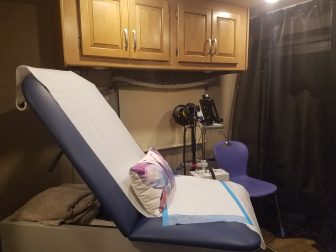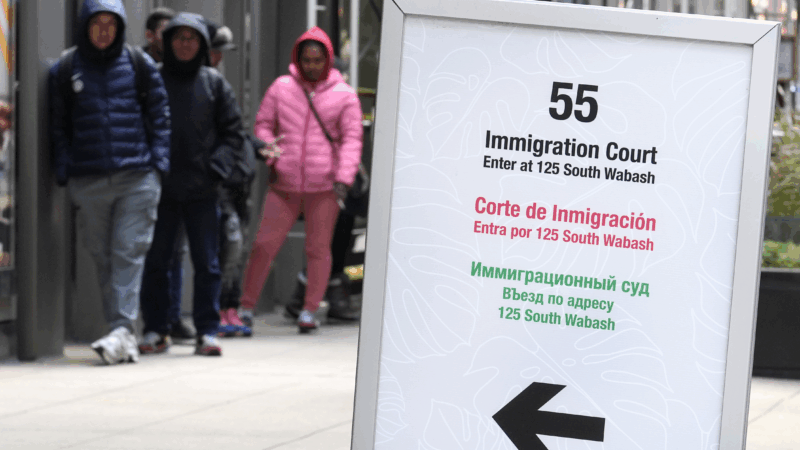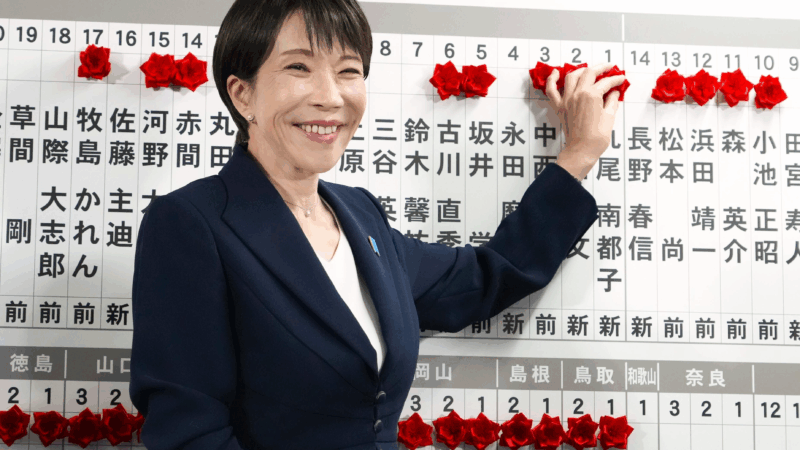Crisis Center Hopes to Reach Rural Survivors with Mobile Unit
There are no clues on the outside of the RV, no labels or identifiers, but inside is a fully functioning clinic. Rebecca Henderson leads the way up the stairs, where a sofa sits lined with pillows and a blanket.
“This is where we do the counseling,” Henderson says. “And so, it’s pretty homey in here. And you know, I try to decorate it to be nice and comfortable.”
In the back of the mobile unit is a medical exam room, equipped to conduct sexual assault exams and other medical screenings.

Mary Scott Hodgin, WBHM
The medical exam room on the mobile unit can be used to give SANE nurse exams and other medical screenings.
The Crisis Center launched the mobile unit this summer. The Birmingham-based non-profit offers free services for victims of sexual violence, including rape response, counseling and advocacy.
Henderson, a counselor at the Crisis Center, says the goal of the mobile unit is to bring those same services to people who live farther away from the city.
“The mobile unit allows us to go into Blount, Jefferson, Walker and St. Clair counties, into these rural areas, to provide that,” Henderson says. “So maybe it’s only a 10-minute drive and therefore more feasible for them to get that.”
Sexual assault survivors in more remote areas can call the Crisis Center and make an appointment. The mobile unit then drives to a set location in that community, like a church parking lot, to meet the survivor.
Nationwide, there aren’t enough medical providers trained to care for survivors of sexual assault. It’s especially a problem in rural communities, according to RAINN, a national organization against sexual violence.
Candice Kato, a victim service officer in St. Clair County, says she used to refer clients in St. Clair to the Crisis Center’s clinic in Birmingham, about 30 miles away. But, she says, getting there is a challenge for many people.
“I think people just don’t know where to go and sometimes it’s just, they don’t think they have a voice to support them,” Kato says. “And maybe, it’s very sad, but in some situations maybe they don’t even realize that they are victims.”
Most sexual assaults are not reported to the police. That concerns Rhiannon Reese, who coordinates the rape response program at the Crisis Center.
“For people that live in those smaller communities, they’re considered at much higher risk, because there are so many barriers to reporting,” Reese says.
She says one of the barriers in small, rural towns is that everybody tends to know everybody and there is also often more stigma around sexual assault. Survivors might not feel comfortable disclosing an incident to local police or medical providers.
Henderson says they hope to use the mobile unit to overcome some of these obstacles, through education and outreach.
“You know we’ve had the Me Too movement and people think we’ve made so much progress,” Henderson says. “But we still have areas, we have communities that are still shaming and blaming survivors. And we know the work has to be done on a community basis, on a systemic basis.”
For now, the mobile unit is funded through September 2020 by the Alabama Department of Economic and Community Affairs. Henderson says they hope to continue the service and create a model for other communities to replicate.
Nancy Guthrie search enters its second week as a purported deadline looms
"This is very valuable to us, and we will pay," Savannah Guthrie said in a new video message, seeking to communicate with people who say they're holding her mother.
Immigration courts fast-track hearings for Somali asylum claims
Their lawyers fear the notices are merely the first step toward the removal without due process of Somali asylum applicants in the country.
Ilia Malinin’s Olympic backflip made history. But he’s not the first to do it
U.S. figure skating phenom Ilia Malinin did a backflip in his Olympic debut, and another the next day. The controversial move was banned from competition for decades until 2024.
‘Dizzy’ author recounts a decade of being marooned by chronic illness
Rachel Weaver worked for the Forest Service in Alaska where she scaled towering trees to study nature. But in 2006, she woke up and felt like she was being spun in a hurricane. Her memoir is Dizzy.
Bad Bunny makes Puerto Rico the home team in a vivid Super Bowl halftime show
The star filled his set with hits and familiar images from home, but also expanded his lens to make an argument about the place of Puerto Rico within a larger American context.
Japan’s Takaichi to pursue conservative agenda after election landslide
Japan's first female Prime Minister, Sanae Takaichi, brought the ruling Liberal Democratic Party its biggest-ever electoral victory, fueling her ambitions to pursue to a political agenda which she says could "split public opinion."






